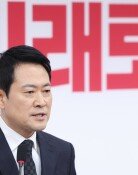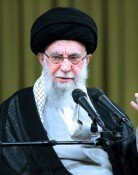Japan Forced the Eulsa Treaty to be Signed?
Japan Forced the Eulsa Treaty to be Signed?
Posted November. 17, 2005 07:58,
It would be of no use to talk to me as I am almost dead. I can speak now, but I am half-dead. After the Eulsa year of 1905, I tried not to speak nor hear, and now I seem to die with poor eyesight and hearing. At least I can speak now.
Han Gyu-seol described in detail the urgency during Ito Hirobumis visit to Korea from the 9th to 18th. He testified that at that time, Cabinet members were strongly opposed to the signing of the Korea-Japan Treaty, but they were forced to do so due to military pressure from Japan.
On the 17th, I was asked to go to the Japanese legation, and then came back to the palace and held a royal meeting, where I reported to the king. I just could not put a stamp of approval on the document. The then minister of foreign affairs, Park Jae-sun, said he regarded the signing of the stamp as precious as his life. Meanwhile, the Japanese foreign affairs minister and soldiers approached the palace, which made the whole situation even more desperate. Lee Wan-yong, the last prime minister of the Korean Empire, Gwon Jung-hyeon, the minister of Agriculture and Commerce, and Lee Ji-yong, the minister of Home Affairs, said mere opposition would do no good, and came up with an alternative idea to revise some of the treatys contents. So it became even more confusing, and the king finally went into his room.
Ito re-appeared and prompted that the treaty must be signed, but I thought it would be better to delay the signing date to buy some time for public consensus, so I came out of the conference room to meet the king, but I was forcefully taken to Ito by a Japanese interpreter. I objected Itos offer again, and then Japanese officials kept me inside a room of the Suokheon palace until 1:30 a.m. the next day, guarding the front of the door. Meanwhile, I was at a loss to hear that the foreign minister put his seal on the document. I knew that even with the approval of the foreign minister, the final approval should be made by the prime minister to be submitted to the king. Otherwise it was invalid, so I was planning to expel the then justice and financial ministers. However, on the next day and onward, I seemed to live in a totally new world. I was the one who was expelled by the king on the charge of malpractice, so I was sentenced to three years in exile.
Han Gyu-seols testimony was published in a series three times and was titled, A Politicians Memoir on the Last Years of the Korean Empire. It served as the main evidence in proving that the Eulsa Treaty between Korea and Japan was a forced one, which makes it invalid according to international law. From January 14 to 17 in 1930, the Korean News, which reported news on Korea to Japan during Japanese colonial rule, published Hans testimony (previously published in the Dong-A Ilbo). However, recently a domestic newspaper made headline news by saying, The evidence to prove that the Eulsa Treaty was forced by Japan has been found after a century, without knowledge of Dong-A Ilbos earlier publication.
Yu Jin-oh, the former president of Korea University, published an article series from July 25 to August 1 in 1951 in the Dong-A Ilbo under the title, Reviewing the Draft of the Korea-Japan Gangwha Treaty, which for the first time raised the issue of unfairness of the treaty after Koreas liberation from Japan. Since then research on the treaty entered a new phase where in May 1992, Yi Tae-jin, a professor at Seoul Nation University, discovered that there was no title of the treaty mentioned in the original document, and that there was no document to confirm the then emperors ratification of it. Later, on October 24, 1993 at the Museum of Art and Archaeology at Columbia University in the U.S., King Gojong, who opposed the treaty to the end, tried to send an American named Homer B. Hulbert with a message containing the throne`s opposition to the treaty, which was sent to heads of states in nine countries.
Chae-Hyun Kwon confetti@donga.com



![[단독]폴란드, 韓 해군 최초 잠수함 ‘장보고함’ 무상 양도 안받기로](https://dimg.donga.com/c/138/175/90/1/wps/NEWS/IMAGE/2026/02/27/133437397.1.jpg)



